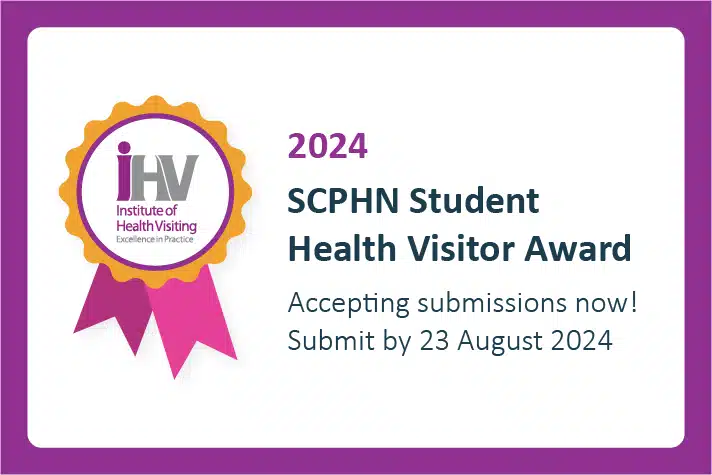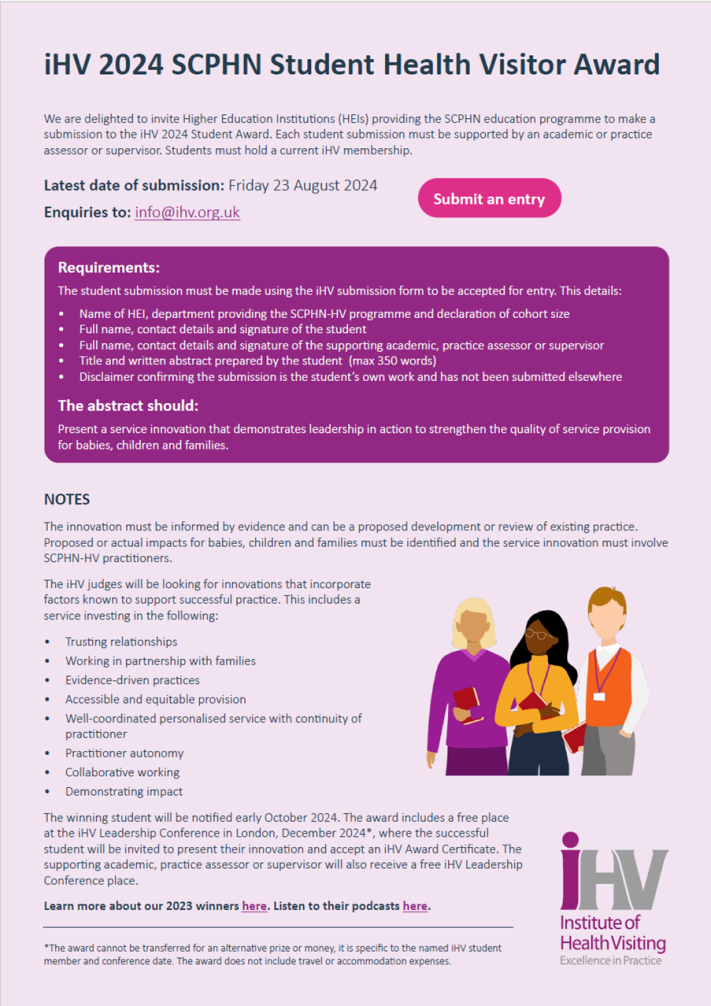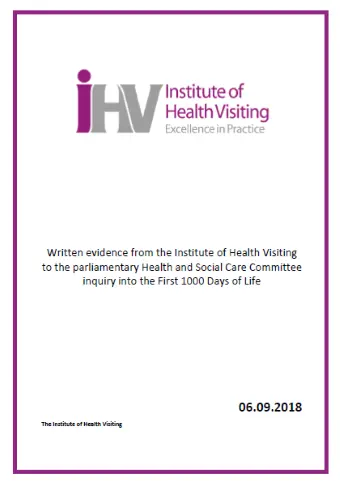Applications are now open for the 2024 iHV award for Specialist Community Public Health Nursing (SCPHN) health visitor students.

This year’s award is linked with the annual iHV Leadership Conference in December 2024. Submission will be accepted from current iHV student members and would need to be supported by an academic/ practice assessor or supervisor. To make a submission, students are invited to prepare an 350-word abstract showcasing an innovation in practice.
The award has been developed to celebrate new talent joining the health visitor workforce and showcase leadership in action for strengthening the quality of service provision.
Requirements:
The student submission must be made using the iHV submission form to be accepted for entry. This details:
- Name of HEI, department providing the SCPHN-HV programme and declaration of cohort size
- Full name, contact details and signature of the student
- Full name, contact details and signature of the supporting academic, practice assessor or supervisor
- Title and written abstract prepared by the student (max 350 words)
- Disclaimer confirming the submission is the student’s own work and has not been submitted elsewhere
The abstract should:
Present a service innovation that demonstrates leadership in action to strengthen the quality of service provision
for babies, children and families.
Latest date of submission: Friday 23 August 2024
NOTES
The innovation must be informed by evidence and can be a proposed development or review of existing practice. Proposed or actual impacts for babies, children and families must be identified and the service innovation must involve SCPHN-HV practitioners.
The iHV judges will be looking for innovations that incorporate factors known to support successful practice. This includes a
service investing in the following:
- Trusting relationships
- Working in partnership with families
- Evidence-driven practices
- Accessible and equitable provision
- Well-coordinated personalised service with continuity of practitioner
- Practitioner autonomy
- Collaborative working
- Demonstrating impact
The winning student will be notified early October 2024. The award includes a free place at the iHV Leadership Conference in London, December 2024*, where the successful student will be invited to present their innovation and accept an iHV Award Certificate. The supporting academic, practice assessor or supervisor will also receive a free iHV Leadership Conference place.
*The award cannot be transferred for an alternative prize or money, it is specific to the named iHV student member and conference date. The award does not include travel or accommodation expenses.





